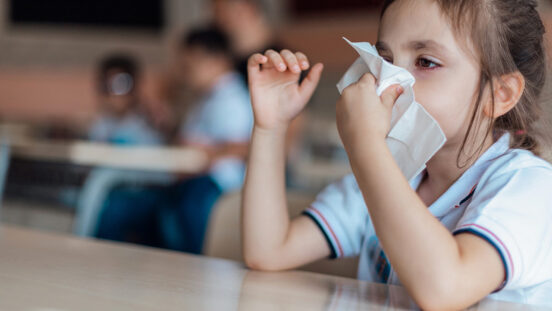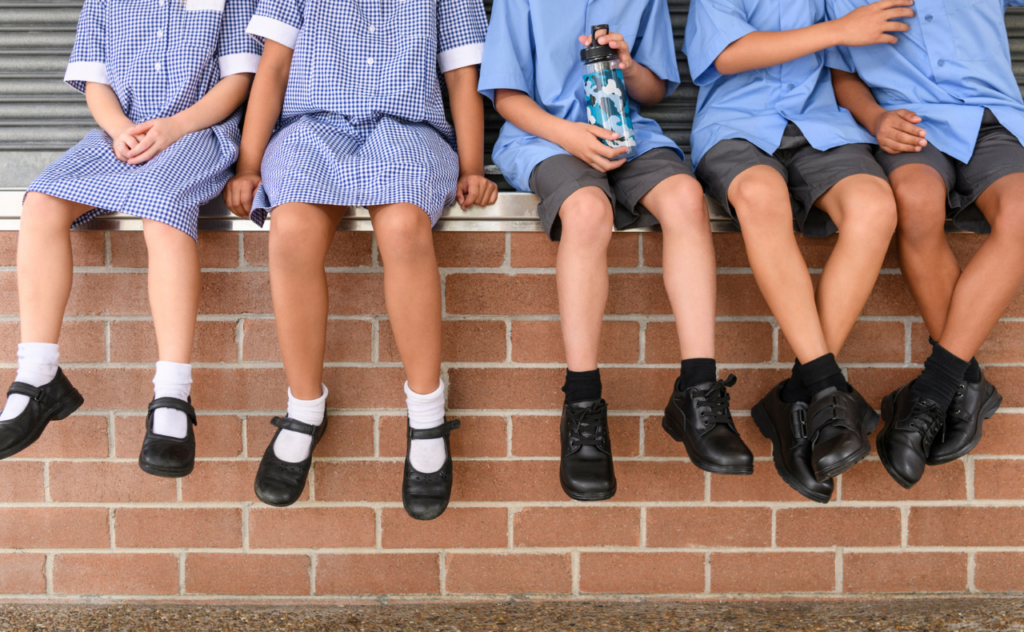Getting sick at school: How to keep your kids safe from germs when you’re not there

Understanding common classroom illnesses is crucial once your child starts school. Learn the symptoms, prevention, and care tips to support their well-being.
When children miss school due to sickness, their health isn’t the only thing that suffers – academic performance can deteriorate as well.
Whether it’s a common cold or severe asthma attack, it’s important to recognise the signs early on and begin necessary treatment as soon as possible, to ensure your child is healthy and back at school in no time.
Discount Drug Stores Pharmacist, Nicky Muscillo, outlines the most common health issues to look out for when your child goes back to school and how to manage and treat these conditions.
Navigating school illnesses: what parents must know
1. Colds, coughs and the flu
The common cold is called ‘common’ for a reason – more than 300,000 laboratory-confirmed influenza cases were recorded in Australia last year, and most Australians contract a cold at least twice a year. Colds and flus are highly contagious, and if they cannot be treated with antibiotics, a proactive approach is the easiest way to avoid symptoms.
“It’s easy for children to catch cold-like symptoms such as a sore throat and runny nose, so make sure your kids are regularly washing their hands and maintaining a healthy diet, packed full of nutrient-rich foods and natural vitamins,” said Ms Muscillo.
It is strongly recommended that children aged six months to five years receive annual influenza vaccine. “To ensure they are equipped with the best line of defence against illness, it is recommended that children receive the influenza vaccination prior to flu season, which typically starts around April.”

2. Gastro and other stomach bugs
Gastroenteritis, better known as Gastro, is a highly contagious stomach bug that spreads via person to person contact, resulting in nausea, vomiting and diarrhoea. Although a bout of gastro usually only lasts a day or two, rest and hydration is key to recovery.
“Drinking plenty of fluids will allow your body to recuperate and fight off the infection,” said Ms Muscillo.
“Any signs of dehydration, including headaches and dizziness, should be addressed with an increased intake of fluids or hydrolytes and if symptoms persist longer than a week, seek medical attention as priority.”
If your child contracts a stomach bug, it’s important that you notify the school and keep your child home until fully recovered, to avoid spreading symptoms to others.
3. Allergies and asthma
Children with allergies or asthma should be monitored year-round, however it’s important to recognise the times that symptoms may be triggered. Children are most at risk of flare-ups or attacks when returning to school, with more hospitalisations seen during the first few weeks of term than any other time of the school year.
“Factors such as stress, a change of environment and less strict management of conditions can exacerbate symptoms of your child’s asthma or allergies,” said Ms Muscillo.
“Unfortunately, you can’t always predict when an attack will happen, so it’s vital that your child’s school has access to medication and training on how to administer it. To prep your child, slowly get them back into a rhythm a few weeks prior or during the first few weeks. Try enforcing routine bedtimes or eating regimes.
“We recommend educating your child on how to stay calm and ask for help during these situations, however if these attacks persist, it is important that you seek advice and guidance from a health professional.”

4. Anxiety
Anxiety and mental health disorders are common in young people, with almost one in seven persons aged 4-17 years found to have a mental health disorder.
“Adolescents and children are one of the most susceptible groups to mental health issues. While lots of kids get excited to go back to school, for a small percentage, it can have the opposite effect and take a toll on their mental stability,” said Ms Muscillo.
“Worrying is a natural response, however if your child is having difficulty sleeping, is over-emotional or unenthusiastic about school or hobbies, consider seeking guidance from health professionals.”
If you suspect that your child or teenager may be experiencing anxiety or problems with mental illness, you should seek help from your GP or school counsellor.
For more information about Discount Drug Stores and their professional services available, please visit www.discountdrugstores.com.au.




